Curriculum
/prod01/channel_2/media/mccms/content-assets/academics/residencies-and-fellowships/internal-medicine-residency-arizona/curriculum/internal-medicine-residency-az-3845191-0008-hero-tablet.jpg)
Clinical training
The most important teaching and learning involves direct patient care coupled with immediate access to faculty. Our rotation schedule and curriculum in the Internal Medicine Residency at Mayo Clinic's campus in Arizona span the wealth of diversity in internal medicine and patients cared for by internists.
Highlights of our curriculum include fundamental training that is balanced between inpatient and outpatient settings, as well as between general medicine and subspecialty medicine. Each resident has a research or career elective in the first year, which allows direct career and research mentoring to begin formally early in training.
As a resident, you’ll have direct exposure to each subspecialty area within the first two years of training. You’ll also have ample elective time to pursue other career-oriented rotations, research, or both. You’ll complete the program feeling ready and well-trained for any career path you choose.
There are many components that make this an incredible program — one of the most important is resident support. From the day you arrive on campus, you’re given a faculty mentor to help assist with the transition to residency. They will help career guidance, but also introduce you to faculty members in your areas of interest. This can allow you to start working on research projects early on in residency training.
Justin Shipman, M.D.
Internal medicine resident, Class of 2019
Procedural opportunities
Residents enjoy built-in time to learn Accreditation Council for Graduate Medical Education-required procedures. There are various procedural opportunities available, including performing lumbar punctures, arthrocentesis, paracentesis, thoracentesis, and central line placement during various rotations as well as during elective months. You’ll also have the opportunity to learn about point-of-care ultrasound (POCUS) to assist in clinical decision-making. Currently, we have a longitudinal POCUS curriculum.
State-of-the-art Mayo Clinic Multidisciplinary Simulation Center training is integrated into the program and provides opportunities to practice and become proficient in skills before performing them on live patients.
Rotation schedule
Residents have the opportunity to rotate internationally, within Mayo Clinic campuses, and at various locations within the Phoenix metropolitan area. You can choose to rotate to Jacksonville, Florida, or Rochester, Minnesota, for a wide variety of rotations. These opportunities may serve to facilitate potential fellowship opportunities within the Mayo system, with room and transportation provided.
Additionally, you can elect to participate in the Mayo International Health Program to rotate at various locations around the globe, providing services to those in need.
You also have opportunities to stay closer to home to work with diverse populations in Arizona, including at the Maricopa County Department of Public Health clinics, Valleywise Health Medical Center (Maricopa Medical Center), Arizona State University campus, and the Phoenix Veterans Administration Hospital.
PGY-1
| Rotation | Length |
|---|---|
|
*Allows one month of supervised career mentoring, planning, and research based on the needs of the intern. |
|
| Wards intern | 3 months |
| Benign hematology | .5 month |
| Outpatient cardiology | .5 month |
| ICU | 1 month |
| Emergency department | 1 month |
| Geriatrics | 1 month |
| Research* | 1 month |
| Veterans Administration | 1 month |
| Ambulatory medicine | 1 month |
| Arizona State University | .5 month |
| Valleywise health wards intern | 1 month |
| Night float | 3-4 weeks |
PGY-2
| Rotation | Length |
|---|---|
| Wards senior | 2 months |
| Cardiology | 1 month |
| Neurology | 1 month |
| Oncology clinic | 2 weeks |
| Nephrology | 1 month |
| Gastroenterology | 1 month |
| Infectious diseases | 1 month |
| Rheumatology | 1 month |
| Elective time | 2 months |
| Night float | 0-1 week |
| ICU | 1 month |
| Addiction | 1 week |
| Health equity | 1 week |
| Circle the City | 2 weeks |
| Palliative medicine | 1 week |
PGY-3
| Rotation | Length |
|---|---|
| Wards senior | 2 months |
| Cardiology | 1 month |
| High acuity elective | 1 month |
| Pulmonology | 1 month |
| Ambulatory medicine | 3 weeks |
| Allergy/immunology | 2 weeks |
| Hematology/oncology | 2 weeks |
| Elective/selective | 11 weeks |
| Night float | 3 weeks |
| Observation | 2 weeks |
| Endocrinology | 1 month |
| Hospital internal medicine consults | 1 week |
The 4+4 schedule, Academic Transition Days, and Personal Half Days ensure regular breaks and have positively contributed to work-life balance. The people and culture, including my hardworking and compassionate co-residents, create a wonderful environment to learn and grow. The many available resources allow me to focus on providing high-quality and comprehensive care and education to patients and their families.
Reena Yaman, M.D.
Internal medicine resident, Class of 2024
Pathways and tracks
Primary Care Track
Overview
The Primary Care Track is designed to enhance the outpatient experience of residents planning a career in ambulatory general medicine while still providing a strong inpatient/subspecialty education. The track guarantees participating residents the opportunity to experience key outpatient rotations with fewer inpatient experiences while still providing robust training and individualized learning plan.
Curriculum
Beginning in the PGY-2 year, Primary Care Track resident curriculum will diverge to provide enhanced exposure to rotations specific to a career in primary care, including:
- Pain Medicine
- Ophthalmology
- Women’s Health
- Outpatient Orthopedics
- Psychiatry
- Urology
- Dermatology
Primary Care Track residents will also receive an additional month of dedicated research and/or career planning time in the PGY-3 year, with a highly customizable PGY-2 and PGY-3 schedule that allows for outpatient electives in clinical rotations of your preference.
Additional information
As part of the track, participants are encouraged to work on a research, leadership and/or advocacy project. Primary Care Track residents will be assigned a primary care mentor. Categorical interns may apply for acceptance into the Primary Care Track in early spring of the PGY-1 year to commence in July of their PGY-2 year. Primary Care Track residents will have the opportunity to rotate in various primary care practice settings, including (but not limited to):
- Federally Qualified Health Centers
- Indian Health Services
- Critical Access Hospitals
- Private Practice
Words from participants
 |
Brian Parker, M.D., M.B.A.Internal Medicine Resident, Class of 2026 The Primary Care Track at Mayo Clinic has inspired me to embrace a bold vision of what primary care can accomplish. While most residency programs teach residents how to manage patients in the hospital, this track goes further—it has equipped me with the skills and knowledge to keep them out of the hospital altogether. At Mayo, the philosophy is simple: just as I tailor medical care to the needs of my patients, my education is tailored to me. There is no other program in the country that customizes your education and empowers you to tackle healthcare's toughest challenges like the Primary Care Track at Mayo does. |
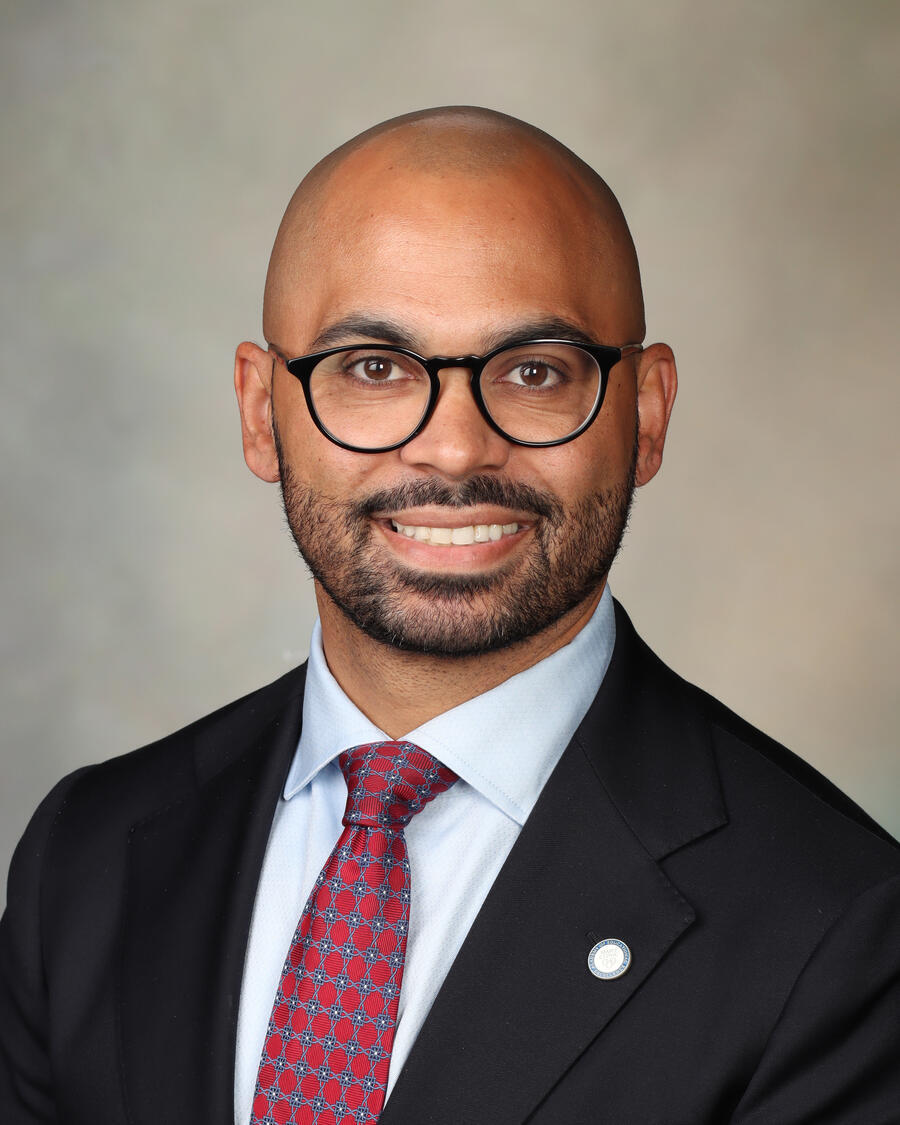 |
Nathan Delafield, M.D.Current Associate Program Director and Primary Care Track Graduate, Class of 2019 The Primary Care Track equipped me with the skills and experience needed for a successful career in primary care internal medicine, enabling me to begin my journey at a Federally Qualified Health Center (FQHC) before returning to Mayo Clinic Community Internal Medicine. I am deeply grateful for the opportunity to focus on outpatient-based care within the track while refining the competencies essential for excellence in this field. This track also provided valuable exposure to the diverse career paths within primary care, including education, administrative leadership, research, and community engagement. |
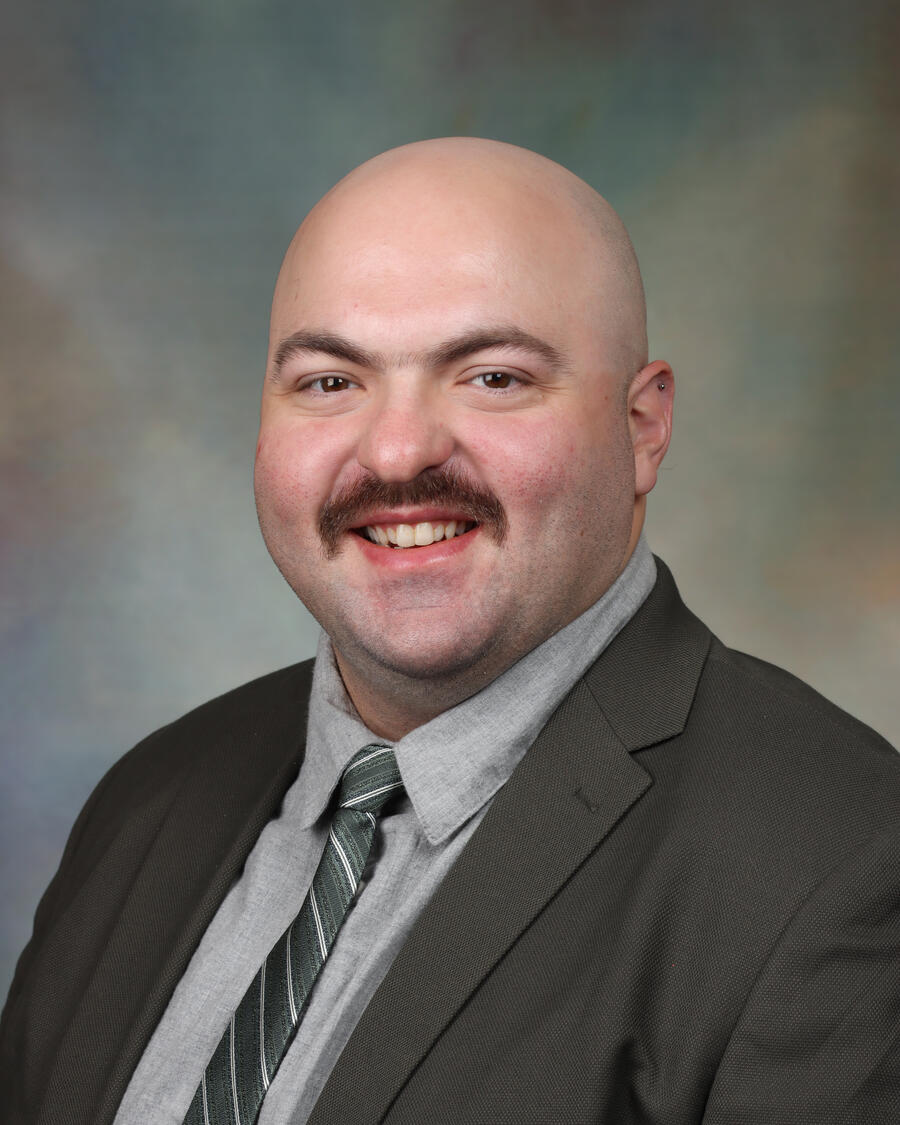 |
Bob Horsley, M.D.Current Faculty and Primary Care Track Graduate, Class of 2019 My first job was providing primary care at a Ryan White-funded clinic for people living with HIV. Mayo Clinic's Internal Medicine Primary Care Track gave me the opportunity to experience specialties we normally don’t see in a traditional Internal medicine residency program, like ophthalmology and dermatology. These rotations provided the experience and tools to diagnose issues like Kaposi Sarcoma, something I never saw clinically prior to my work as an attending at that clinic. In addition, the primary care track gave me these experiences in a way that I did not feel compromised my other Internal Medicine training, and I felt well prepared if I decided to change career paths to hospital internal medicine or fellowship |
Artificial Intelligence in Medicine Research Track
Overview
The Artificial Intelligence in Medicine Research Track is a cutting-edge initiative designed to offer internal medicine residents exceptional training in data science and artificial intelligence. The program provides a strong foundation through a structured curriculum, focusing on essential skills in AI and data science, with emphasis on programming, healthcare data infrastructure, and AI applications in clinical practice.
Residents will engage in longitudinal, mentored research in leading AI and data science labs at Mayo Clinic and Arizona State University, gaining hands-on experience in innovative projects. Additionally, the program offers dedicated career development opportunities, preparing residents to become leaders in the rapidly evolving intersection of medicine and data science technology.
Curriculum
- One Month Dedicated Research Time Each Year: Residents are provided with one month each year to immerse themselves in AI and data science research.
- Elective Options for Track Trainees: Trainees can choose from specialized electives in tracks in Clinical Informatics and Data Science.
- Programming Fundamentals in Python: Develop essential coding skills for AI research.
- Data Infrastructure at Mayo Clinic: Learn how to manage and utilize large healthcare data sets.
- Key Principles of AI in Healthcare: Gain an understanding of how AI can transform clinical practice.
- Deployment and Testing of AI in Clinical Practice: Learn the practical steps to implement and evaluate AI tools in real-world clinical settings.
- Ethics in AI and Healthcare: Address important issues like bias, privacy, and responsible AI development.
- Explainable AI: Understand and communicate complex AI models to patients and colleagues.
- AI for Health Equity: Explore how AI can address healthcare disparities in US and worldwide.
Goals of the track
Residents will demonstrate success as early-career physician-data scientists by achieving milestones such as:
- Longitudinal AI Research Project: Participate in a multi-year research project, culminating in a first-author publication by the end of residency.
- Presentation at a National Conference: Present research findings at national conferences, contributing to advancements in AI and medicine.
- Development of a Data Science/AI Application: Gain practical experience by developing a real-world AI or data science application.
- AI in Medicine Education Initiative: Create content to educate the public about AI in healthcare as part of a patient education or community outreach program.
Words from participants
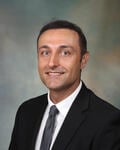 |
Bobak Seddighzadeh, M.D.Internal Medicine Resident, Class of 2025 In 2023, a Nature paper by Google revealed that large language models are approaching expert-level clinical capabilities, showcasing their transformative potential in healthcare. Yet, these advancements bring ethical and societal challenges, underscoring our duty as physicians to uphold the patient’s best interest. This innovative three-year program blends structured mentorship, targeted didactics, and hands-on training to prepare residents to become leaders in AI and medicine upon graduation. |
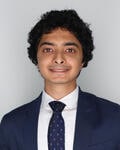 |
Samarth Rawal, M.D.Internal Medicine Resident, Class of 2027 Before joining Mayo Clinic, I worked at the forefront of developing generative AI models with applications in healthcare. Now, as the inaugural participant in the AI and Medicine Residency Track, I am excited to elevate my expertise to the next level. The AI in Medicine Track at Mayo Clinic in Arizona combines clinical excellence with physician-engineer collaboration, robust technical infrastructure, and an organization-wide investment in bringing clinical AI innovations to the bedside. I am thrilled at the opportunity to be part of this innovative track and to contribute meaningfully to the future of medical AI, both during my training and throughout my career. |
Clinician Educator Pathway
Overview
The goal of the Clinician Educator Pathway is to train clinician educators to be patient-centered clinicians, inspirational teachers, and servant leaders in medical education at Mayo Clinic and beyond. It does this by providing a community for future clinician-educators through small group sessions, peer coaching, innovation, and scholarship.
Curriculum
Trainees are given one day a month to take part in virtual didactics and small groups on various education topics such as education theory, curriculum development, small group teaching, feedback, and so on.
Trainees participate in a capstone project relating to medical education.
Words from participants
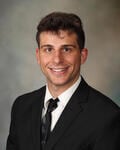 |
Matt Biondi, M.DInternal Medicine Resident, Class of 2025 The Clinician Educator Pathway has been instrumental in increasing my understanding of medical education and providing me with tools to maximize my effectiveness as a medical educator. As someone who is heavily invested in medical education and wants to make it a significant part of my career, the pathway is a great way to network with leaders at all three Mayo Clinic sites. Sessions are dynamic, engaging, and manageable even with a busy resident schedule. |
Clinician Investigator Training Program
Mayo Clinic is dedicated to advancing patient care through basic, clinical, and translational research, and provides world-class clinical and research education. The Clinician Investigator Training Program is a two-year integrated experience designed for residents and fellows who aspire to combine research with a robust clinical practice. Our Residents are eligible to apply after completing their PGY-1 year, and the program includes six months of dedicated research time during residency, followed by a fellowship position at Mayo Clinic.
Trainees benefit from:
- Access to Mayo Clinic’s advanced facilities and resources
- Collaboration opportunities with leading centers such as the Kern Center for the Science of Health Care Delivery, the Center for Individualized Medicine, and the Center for Regenerative Medicine
- Personalized training that combines subspecialty clinical work with research experiences
- Formal preparation in both clinical and basic science research, with opportunities to pursue advanced degrees
- Close mentorship from world-renowned faculty, supported by a low faculty-to-trainee ratio.
Graduates of the program complete their clinical certification while developing the skills to become independent investigators. Many go on to become leaders in academic medicine. For more information, visit the Clinician Investigator Training Program website.
Conferences
- Noon conference. Monday through Thursday, attended by faculty, residents, and medical students on every rotation. Faculty physicians lecture on area of expertise in internal medicine, practice, or research. Chief residents deliver one hour of morning report-style content per week during this conference slot.
- Morbidity and mortality. Monthly Department of Internal Medicine conference where interns, residents, fellows, and specialty staff discuss one or two cases led by an intern or resident, with expert commentary from various fellows and staff.
- Grand Rounds. Weekly Department of Internal Medicine conference where all staff, fellows, residents and other guests attend, with a variety of intramural and invited expert speakers.
- Journal clubs. Led by staff, intern or resident, from formal to casual settings. Attendance is required if clubs are held during regular work hours on a specific rotation. Attendance is optional if clubs are held in a more casual after-hours setting.
- Department-specific conferences. Usually led by staff or fellows. Can be topic-based, research-based, or a formal journal club format.
Research opportunities
As a resident, you’ll appreciate the abundance of research opportunities available to you throughout the program. Our program offers continual discussion of potential research topics in nearly every area of interest. Dedicated elective opportunities for research are available during all years of training. These opportunities are mentored by world-renowned Mayo experts.
Residents are involved in the American College of Physicians Associates Abstract Competition and frequently present at national and international conferences. Since 2009, our trainees have published more than 350 articles in peer-reviewed journals.
The support for research projects, from mentorship to statistical assistance, is excellent. If you’re interested in an academic career and clinical research, the program has the resources and the personnel to help you succeed in your goals. Every mentor that I have approached has dedicated time to discuss my research interests and develop a project. The technical support from poster making, statistical analysis, and even travel are covered by the program. No other program even comes close.
Andrew Tseng, M.D.
Internal medicine resident, Class of 2019
VA Rotations
As part of your training, our curriculum provides valuable exposure to the VA healthcare system.
- PGY-1 residents rotate through the Phoenix Veterans Affairs Medical Center Outpatient clinics.
- PGY-2 and PGY-3 residents also have opportunities to pursue VA-based electives that align with their interests.
This experience allows residents to work within the VA system, care for a diverse patient population, and gain familiarity with unique aspects of veterans’ healthcare delivery.
VA Security Clearance Requirement
Since your training requires rotations at the Phoenix Veterans Affairs Medical Center (or other VA-affiliated hospitals), you will be required to complete enhanced background checks, including FBI-facilitated security clearances, before beginning your VA rotation. These requirements apply to all physicians, including both U.S. and international medical graduates.
For more details, please review common questions about the process.